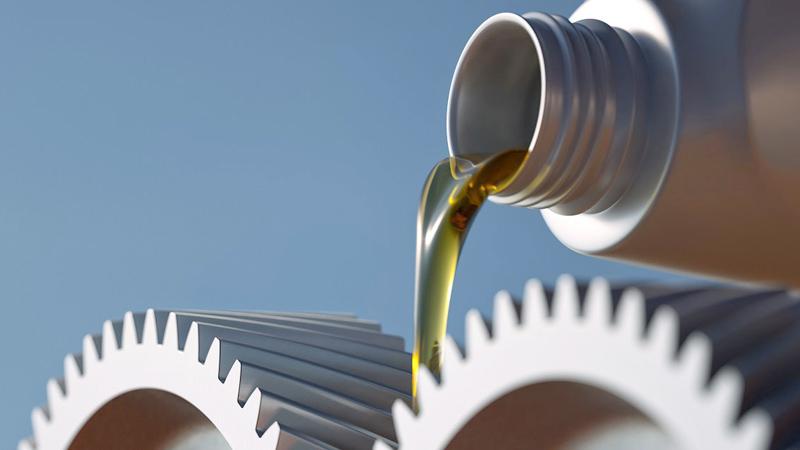
The Public Utilities Commission of Sri Lanka (PUCSL), the shadow regulator for the lubricant industry assured that the policy framework for the regulation of the industry will be finalised and presented to the Ministry of Petroleum Resource Development by the end of June.
“We are working on the regulatory framework and it will be finalised and presented to the Petroleum Ministry by the end of June,” PUCSL Director General Damitha Kumarasinghe said.
The absence of an effective regulatory mechanism under an independent regulator has stifled the growth of the industry currently comprising 13 players and around 22 authorised brands.
The 65 million-litre market of the lubricant industry is faced with many issues as voiced by industry stakeholders at last week’s public consultations on ‘pricing and quality’ pertaining to the lubricant industry organized by PUCSL.
Quality, availability, pricing, measurements and the need for an independent regulator to put an end to the grey market that has grown over the years unchecked despite industry lobbying.
While the PUCSL, the regulator for the lubricant industry has been trying to sort out policy framework for several years, the adulterated market has also grown taking a share of about 30 percent of the lubricant market, industry sources said.
“PUCSL only assists the Petroleum Ministry as an adviser. It is not the regulator,” Kumarasinghe said.
Chevron Lubricants Lanka PLC Managing Director/CEO Kishu Gomes said liberalizing the market without a regulatory mechanism is similar to opening the flood gates for the grey market to thrive.
‘Foremost there should be an effective regulatory mechanism for the industry and it is then that the market should be liberalized for investments in local manufacture with value creation,” Gomes said.
Stakeholders held the same view that there is no use in opening up the market without an independent regulator.
Director/CEO Mobil Operations in Sri Lanka (McShaw Automotive Ltd), Tharindu Atapattu said many are of the view that lubricants refer only to engine oil. “Engine oil and brake fluid or in common parlance called brake oil are both lubricants. However, there has to be regulations to stop the sale of brake fluid in unsealed cans which compromises the quality of the lubricant.”
“The unregulated and unprofessional operation is detrimental to the lubricant industry. Brake fluid has to be in a proper sealed environment if not it will absorb moisture. Motor cycles and three wheelers account for over 75 percent of the accidents in the country due to brake related problems,” Atapattu said.
He said even though the PUCSL states that are only 13 players and 22 brands in the lubricant market, there are many illicit imports of products to the country which needs to be checked by a regulator.
When asked what caused the delay to empower the PUCSL with regulatory powers, Kumarasinghe said the PUCSL had been working on the framework for some time and that it has now realized the need to have more teeth to regulate the industry.
“The framework will help sort out all issues affecting the industry and we hope the law will come into force by the end of this year enabling the PUCSL to be the regulator for the lubricant industry,” he said.
The lubricant industry recorded a double digit growth following the end of the conflict in 2009. However, since then the industry has been expanding at a sluggish pace hovering around 3-4 percent per annum.
The industry’s growth has been impeded by illegal imports, product repackaging and adulterations which account for around 20-30 percent of the lubricant market.
“The government loses revenue, channel partners are misled, consumers are deprived of quality products and the industry suffers due to expansion of the grey market,” Gomes said.
The government is losing between 20-30 percent of the industry revenue each year due to the adulterated market. According to industry sources 20 locations involved in adulteration and sales of illegally imported products have been identified but no action has been taken to nab the culprits.
“I have submitted a detailed report on the illegal trade to the PUCSL and the petroleum ministers of successive governments but to no avail,” Gomes said.
However, according to him the Police Department have sighted loopholes in the law for not being able to prosecute the culprits. The Petroleum Special Provisions (Amendment) Act has not yet been approved resulting in the PUCSL, the power and petroleum resource sector regulator not being able to prosecute the wrong doers.
The irony, according to industry experts is that the government wants to further liberalise the lubricant industry enabling more players to enter the industry which they think, is already saturated.
Another concern raised by the industry representatives is the absence of an independent laboratory to test imported oils.
The damage to machinery due to the application of adulterated and illegal products is enormous as the machinery need to be replaced by importing at a huge cost. The players have to bear this cost in addition to the license fee which is Rs. 5 million per player and the sales commission which is .5 percent.
Industry players said while license holders import lubricants that also includes synthetic lubricants under HS Code: 27 at a higher Customs duty. non license holders import at a lower duty.
Laugfs Holdings Chairman W.K.H. Wegapitiya said current scenario in the industry where adulterations and imports of finished products are encouraged does not help the lubricant industry to grow. In other countries’ local production is encouraged by imposing higher tariffs for importation of finished products and a lower tariff for importation of raw materials for local manufacture and exports, he said.
Laugfs, Indian Oil and Chevron Lubricants produce lubricant products locally using imported raw materials.
